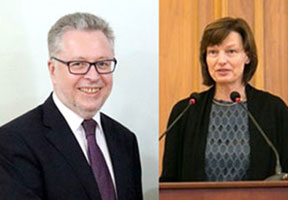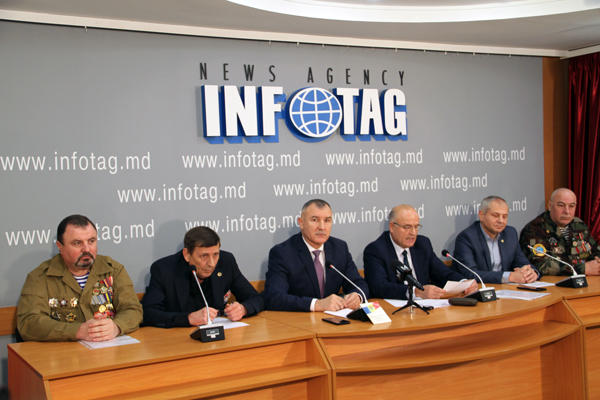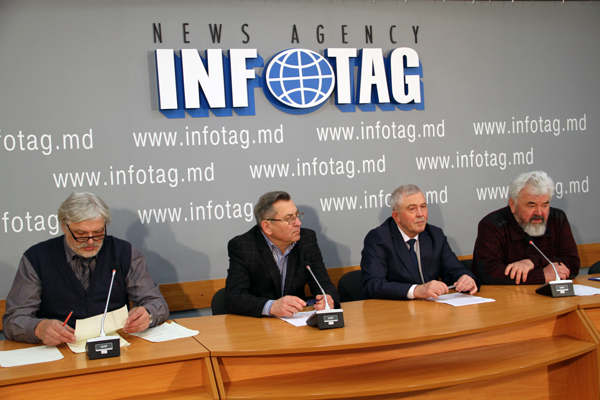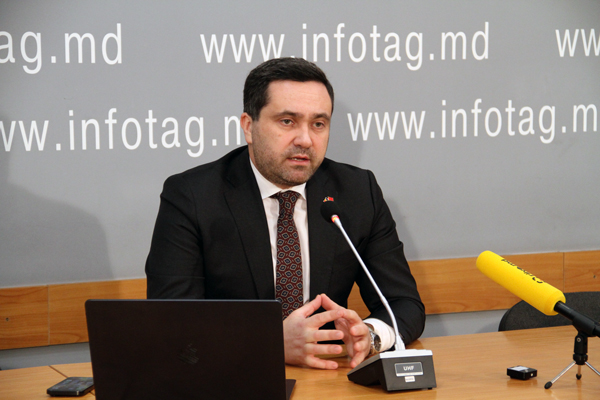Interview
AMBASSADORS OF FRANCE AND GERMANY IN MOLDOVA: SUPPORT TO MOLDOVA BY OUR COUNTRIES DEPENDS ON THE PROCESS OF IMPLEMENTING RELIABLE REFORMS BY THE AUTHORITIES

(Interview with French and German ambassadors to Moldova, Pascal LE DEUNFF and Angela GANNINGER)
- In January 2019, on the occasion of the 56th Anniversary of the signing of the Elysée Treaty between France and Germany, a new Franco-German Treaty was signed by President Emmanuel Macron and Federal Chancellor Angela Merkel in Aachen, a city at the border between France and Germany. What goals did the two leaders pursue while signing that treaty?
- The goal of the Elysée Treaty, which was signed in 1963, was the reconciliation between France and Germany. Its purpose was to make this reconciliation irreversible. Today, this reconciliation is an obvious reality. Out of reconciliation grew friendship and many dimensions of joint government and civil society activities.
The Aachen Treaty signed a year ago builds on the Elysée Treaty and establishes a new level of bilateral cooperation through which Germany and France can jointly address European foreign, security, social, and economic policy challenges. The Treaty on the one hand, solemnly recalls our common attachment to important principles (the rule of law, multilateralism, the rights and freedoms of the European Union and the rules governing international trade) and, on the other hand, sets the course for the decades to come in terms of shared objectives.
The goal of the 1963 Treaty was reconciliation; the policy objective of the 2019 Treaty is the convergence of our economic and social models, of our positions in international fora and of our regulations, with a view to European integration. On a practical level, the objective is to promote encounters and exchanges at the level of civil society and to jointly develop innovative European solutions at our common border to promote better European integration. The new Treaty sets concrete objectives for Franco-German cooperation in five areas: European affairs; peace, security and development; culture, education, research and mobility; regional and cross-border cooperation; sustainable development, climate, environment and economic affairs.
- What kind of impact has this treaty had on bilateral French-German relations over the past year and what do you expect from this treaty in the future?
- This Treaty gave a new political momentum to the Franco-German relationship. Our common strong desire for a rapid and ambitious implementation of the Treaty has favored the intensification of Franco-German concertation between our Parliaments, our respective administrations, between our diplomatic representations around the world (such as in the Republic of Moldova) and within multilateral bodies. At the political level, we twinned the French and German presidencies at the United Nations Security Council in March-April 2019.
For our citizens, we have created a Cross-border Cooperation Committee, which will deal with everyday problems in the border region. The inaugural session will take place in Germany on 22 January 2020, the Franco-German Day. A Citizen Fund will soon be launched to support even more civil society initiatives, association projects and twinnings between local authorities.
Fifty six years after the Elysée Treaty, this new Treaty is a roadmap for Franco-German cooperation for the coming decades, both at the political level and for the rapprochement of our societies.
- A year ago, Paris and Berlin were saying that the new treaty would not replace the Elysée Treaty but would only complement it by adapting the French-German cooperation to the challenges of the 21st century. A year after the treaty was signed, could you say to what extent it met the expectations? What are these challenges today?
In one year, several concrete results of the French-German cooperation have already been achieved. We would particularly like to emphasize three of them:
1/ In order to create a Franco-German Research and Innovation Network on artificial intelligence a roadmap has been signed by the respective Ministers of Education, Research and Economy. This initiative has been complemented by research initiatives on the European level.
2/ Significant progress has been made in the defence area. Joint industrial projects have been launched for the tank of the future and the airfighter of the future, which are important projects for European countries to strengthen their self-defense capabilities.
3/ In the field of diplomacy, France and Germany gave a new impetus to the negotiations for the settlement of the conflict in the Donbas during the summit of the Heads of State and Government in the so-called Normandy format on December 9, 2019 in Paris. This meeting between Mr. Macron, Mrs. Merkel, Mr. Putin and Mr. Zelinski enabled positive and immediate progress (unlimited cease-fire, demining, disengagement of combatants from additional zones, exchange of prisoners) and the initiation of political and security discussions for the holding of local elections. A new summit will be held within three months. We are hoping that this process will lead to a political settlement in Donbas, which would be beneficial to the whole region.
- The goal of the new treaty is not only to boost cooperation between France and Germany but also to strengthen the European Union. How exactly could this be achieved and what are the challenges in this process?
- Within the EU, coordination between Germany and France is intense. It covers both internal policies and the Union's external relations. Numerous joint initiatives and jointly developed compromise proposals make the two States a real driving force for advancing European unity. The Treaty of Aachen thus makes it possible to further strengthen Franco-German cooperation ahead of major European deadlines.
This Treaty also encourages the two States to implement better coordination of national texts transposing Community rules into internal law and thus makes it possible to build an integrated economic area. This coordination will prevent the appearance of possible distortions of competition resulting from a different application of European directives.
When the treaty was signed on January 22, 2019, the presence of Donald Tusk, President of the European Council, Jean-Claude Junker, President of the European Commission, and Klaus Johannis, the Romanian President representing the rotating Presidency of the Council, sent a strong signal to all EU member states, demonstrating the support of the European institutions for this bilateral initiative. Furthermore, the Treaty explicitly confirms our determination to keep our enhanced cooperation open to all member states of the European Union.
- The signing of the treaty coincided with Brexit, which, many experts believe, will weaken the EU. How Paris and Berlin could „compensate” Brexit and prevent any other exits from the EU?
- We regret, of course, the choice of the British people. Brexit will take place on January 31 and the EU will begin negotiations with London on the future relationship with the United Kingdom, a key partner in particular for security and defense issues.
We must not let ourselves be taken over, however, by the Brexit issue. It is up to us Europeans to determine which Europe we want. The new EU Commission and the Aachen Treaty provide a positive agenda for our common future in the Union.
In the wake of citizen consultations for Europe, the Conference on the future of Europe, proposed by the French President and taken up by the new European Commission, should start in 2020 and take place over the next two years. France and Germany will make joint proposals for this initiative, in order to involve EU citizens and allow them to participate actively, while reflecting the essential role of EU member States, especially on key issues such as the rule of law, European values, the social market economy model, the role of the EU in the world, its security, its neighborhood, climate change and migration. The results of the Conference will pave the way for new democratic working methods with citizens and for reform of the policies and functioning of the EU.
- Under the treaty, a Franco-German Parliamentary Assembly with 50 French and 50 German members had to be created. Has this already happened? What is the goal of this assembly and what are the results of its activities so far?
- The creation of a binational parliamentary assembly is absolutely unprecedented. The Franco-German Parliamentary Assembly is responsible for overseeing the implementation of the Élysée and Aachen treaties, monitoring the activities of the Franco-German Council of Ministers and the Franco-German Defense and Security Council, as well as international and European affairs of common interest. This body can formulate proposals in order to achieve a better convergence of German and French laws.
The Assembly met twice in 2019: the first meeting was devoted to its launch and the second allowed the adoption of a joint motion for a resolution of the National Assembly and the Bundestag on the implementation of the Aachen Treaty as well as a deliberation establishing a working group on disruptive innovations and artificial intelligence.
- After an inconclusive parliamentary election in February, the pro-Russian Party of Socialists formed a new ruling coalition with their ideological rivals, the pro-European PAS and DA parties, and ousted the Democratic Party from power. The new coalition described the events as the “liberation of the captured state”. However, that coalition collapsed five months later and now we have a new government. In the light of these events, how do you assess the situation in Moldova and its prospects on the European integration path?
- The Republic of Moldova has a new Government, and the need for implementing genuine reforms, to which Moldova has committed itself in the Association Agreement signed with the EU, remains essential for the country’s long-term political, democratic, social and economic development.
As always, together with their European partners, Germany and France stand ready to support these reforms and, as always, our support remains conditional. We hope that the Government of the Republic of Moldova will actively work on the reform agenda, in the best interest of its citizens. We consider it of the utmost importance that the Government delivers, as soon as possible, tangible results in critical areas, such as the justice reform and the freedom of the media, and rapid progress in the fight against corruption.
- The year 2020 is expected to be a difficult one for Moldova, including in the context of the presidential elections scheduled for the end of the year. So, what do European partners expect from Moldova’s authorities in 2020?
- We believe that the Moldovan people deserve independent and fair institutions and procedures in the justice sector. The people expect economic reforms, which would bring real sustainable benefits to all citizens. As the government wants to attract a large amount of money within a short period of time we consider it extremely important that sound economic management, transparency and accountability will be exercised with regard to any infrastructure or other project in order to avoid unnecessary future costs for the people of the Republic of Moldova. The Republic of Moldova’s leadership is also expected to have the theft of a billion’s investigation finalized, to bring those responsible to justice and to intensify the fight against corruption and vested interests.
Comments [ 2 ] Add Comment
-
Just the two allies? Extenze
-
It is amazing to see people who are this dedicated towards their jobs, we need more of these kinds of people in the paintless dent repair industry.
-
Dentat Implants in Houston
-
Thanks for sharing! My Family Dentist Houston
























Add Comment